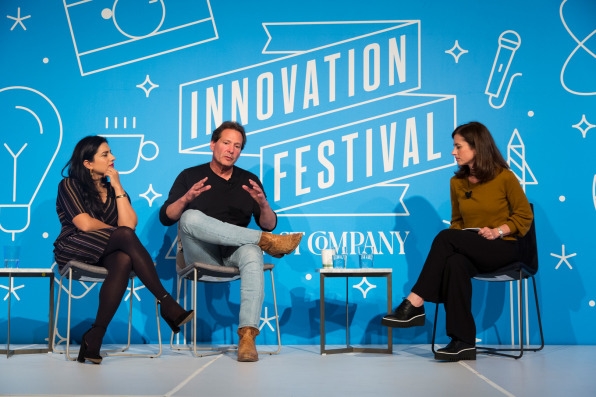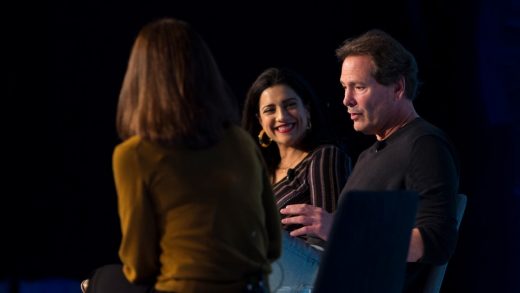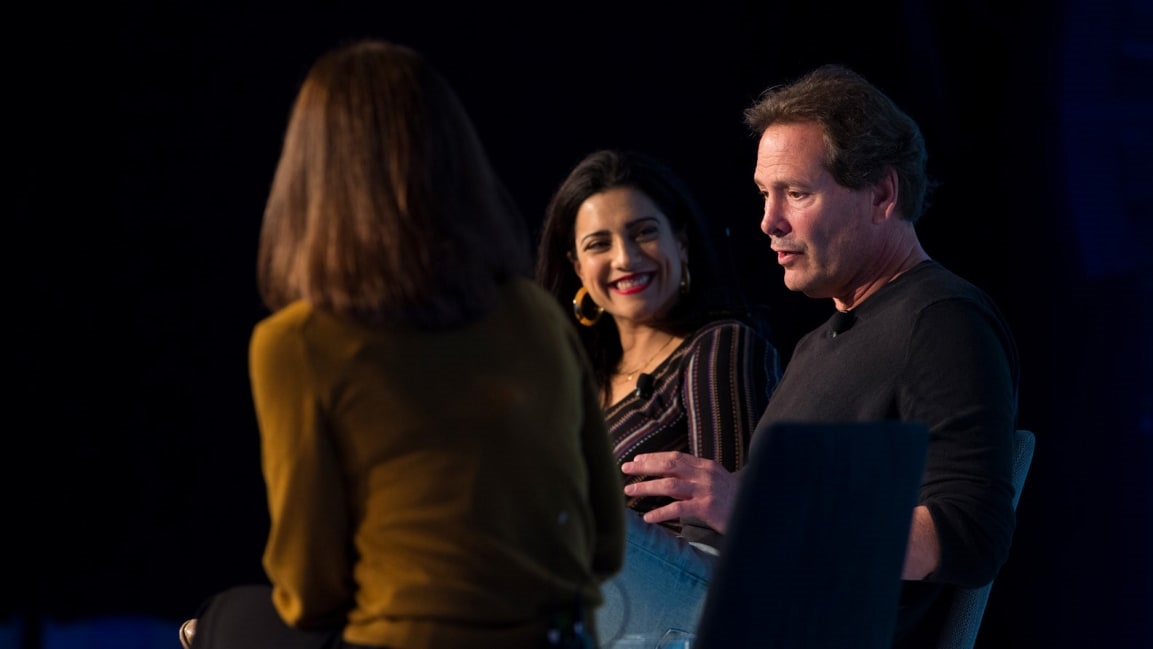Men, do you want to be better allies to women at work? ‘Sometimes, be quiet’
Back in 2012, when Reshma Saujani founded the nonprofit Girls Who Code as a way to teach computer science to girls and help achieve gender parity in tech, she didn’t have a full grasp on all the systemic problems her students would face in male-dominated tech circles.
“I was very naive when I started Girls Who Code,” Saujani told an audience at the Fast Company Innovation Festival in New York (November 15, 2019). “I was like, ‘all nerds welcome.’ All we have to do is teach and they’ll hire them.”
Seven years later, it hasn’t exactly panned out that way, Saujani concedes, citing a recent survey the group conducted in which 50% of college-age women said they either experienced harassment during the job interview process or knew someone who did. That included things like inappropriate interview questions and, yes, even getting asked out on a date in lieu of a job offer.
Saujani says she continues to get emails from former students frustrated by their inability to find work in tech, despite some having 4.0 GPAs from top schools like MIT, Berkeley, and Stanford. She said the problems women face getting hired in tech—from startups to larger firms like Facebook, Google, and the like—are rooted in entrenched patriarchal systems that are slower to change than we often acknowledge.

“The thing is, people don’t give up power,” she said. “And those are the types of conversations we need to have.” That means building an “allyship” with men who understand both when to speak up and when to let others do the speaking, Saujani says. She called on men to call out bad behavior when they see it, especially in closed-circle social situations when women may not be present.
“You are in those situations, those after-work cocktail parties, those meetings where something was said, where you walked away and said, ‘Hmm, that wasn’t cool. I didn’t like that,’” Saujani said. “Here’s the thing: nothing changes unless you stand up . . . and you find your voice to be courageous.”
But being courageous can also mean knowing when not to speak, Saujani added. “Sometimes, that means being quiet,” she said. “Men speak 80% more in meetings. We all know that, right?”
Saujani made the comments on a panel with PayPal CEO Dan Schulman in which the two of them discussed purposeful leadership. Despite some stubbornly grim statistics regarding sexism in the tech industry, the Girls Who Code founder said she believes in this generation of men, whom she describe as being “woke in ways that older generations of men aren’t.”
“We have to get in solidarity with our sisters, and we have to basically stand up and speak out,” she said. “And that needs to happen at the same time as our male allies are doing the same. That’s the only time things change.”
“And I think tech has to realize that all nerds are not welcome,” she added.
(49)



